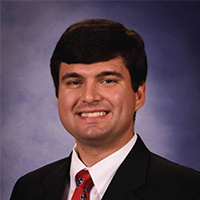 Celina Felony Lawyers, Tennessee
Celina Felony Lawyers, Tennessee
Not enough matches for Celina Felony lawyer.
Below are all Celina Criminal lawyers.
Sponsored Lawyers
1-10 of 14 matches
Accident & Injury, Estate Planning, Litigation, Business, Criminal
Matthew is a proud native-born Tennessean and the third generation to live on my family’s farm. His roots trace back to his ancestor and the first governor of the state of Tennessee, John Sevier. While at the University of Tennessee College of Law, Matthew concentrated his studies on advocacy and dispute resolution. Prior to law school, he worked as an agent with Farm Bureau Insurance of Tennessee. Matthew understands the importance of communication, honesty, hard work, determination, and treating people the way you would want to be treated. He is honored to serve the legal needs of individuals and companies with interests in and throughout Tennessee.
(more)




